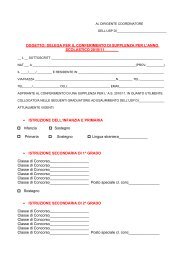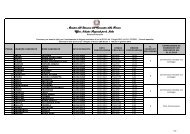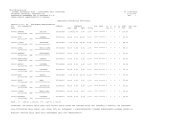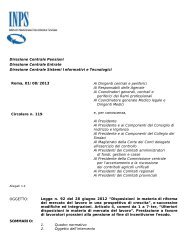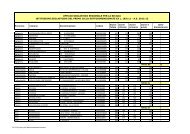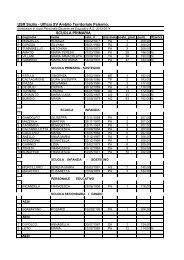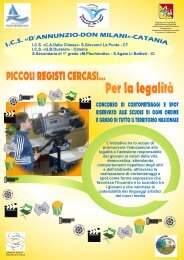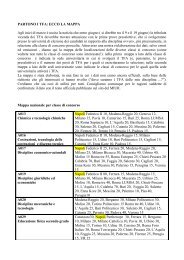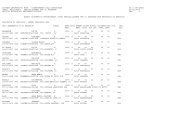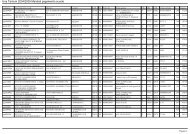Analisi - knowledge management case studies - Aetnanet
Analisi - knowledge management case studies - Aetnanet
Analisi - knowledge management case studies - Aetnanet
Create successful ePaper yourself
Turn your PDF publications into a flip-book with our unique Google optimized e-Paper software.
By observations it was discovered that there is a culture arising within Shell, where people<br />
are saying ‘I didn’t invent this myself, I took ideas from him.’ Using ideas from others starts<br />
being encouraged and is popping up in some appraisal systems within individual operating<br />
companies. In these companies it is more beneficial for an individual to search for solutions<br />
already available, solicit suggestions and to admit that you have used someone else’s idea<br />
instead of developing your own solution. In some parts of the company the appraisal systems<br />
contain elements related to publishing information and to assisting others.<br />
Comparing individual Shell companies or business units merely on their own bottom line<br />
performance can be a hindering factor in <strong>knowledge</strong> sharing – sharing information reduces<br />
the competive advantage of an individual company in comparison to their peers within the<br />
Shell Group. This is to be compensated by including elements in the comparison as “total<br />
contribution to the Shell Group”, “implemented innovations by and from other companies”.<br />
Processes<br />
Best Practice Transfer<br />
In 1997 they tried a classical Business Process Benchmarking approach (some other oil<br />
companies work this way). Which means taking business processes of exploration and<br />
production, then step by step defining performance indicators for the various process parts,<br />
analysing the process parts of the various Shell operating companies and comparing them.<br />
Trying to explain the differences between good and bad performing operating companies,<br />
then describing the ways of work of the best performing operating companies and transfer<br />
this information to mediocre performing operating companies. This didn’t work at a global<br />
scale for several reasons; the formal taste of it all was not accepted by the operating<br />
companies.<br />
Later, in January 1998, they tried to follow a very simple approach to best practice transfer,<br />
learned from a network in the downstream sector of Shell. This network originated from the<br />
reorganisation of an Amsterdam based central office group of 10 people (engineers, former<br />
experts in the field themselves) which gave advise to colleagues working at Shell’s refineries<br />
around the world. The main reason for the need of such an office is that many colleagues in<br />
the Operating Units work remotely and may be one of the few skilled persons in the discipline<br />
on that place. In some <strong>case</strong>s there is no other colleague present in the vicinity of hundreds of<br />
kilometers. Royal Dutch/Shell Group of Companies decided to downsize its central offices<br />
and due to this decision the Amsterdam based group of experts had to do the same work with<br />
4 employees (40%) less. Therfor they came up with the idea to let the total community of<br />
engineers in the field help themselves. This was enabled by letting them send a question to<br />
the central office by E-mail or sometimes by a fax. The former expert at the central office<br />
became the moderator who ensured that the question was formulated in such a way that the<br />
engineers who were expected to answer it would interpret it correctly. The rephrased<br />
questions were sent by E-mail to all engineers in the field. If it took the engineers to long to<br />
answer the question, the moderator would start chasing for an answer, by calling people they<br />
expected to be knowledgable to answer it. Doing so, the problem-owner got his problem<br />
solved by his peers. Since all the questions and answers are collected in a worldwide<br />
accessible database, the next time the same problem occurs an engineer first looks for a<br />
solution in the database and therfor only needs to contact his peers via the moderator when<br />
the solution is not available yet. The achievement of this network is $5+ Million benefits<br />
/annum at $300k costs/annum. Based on the succes of such a simple concept New Ways of<br />
Working decided to copy this concept and implement it into Exploration and Production<br />
operating units. At the moment there are 60 communities.<br />
Moderation<br />
For the task of the moderator is refered to the previous section called: Best Practice Transfer<br />
and the section called: Leadership and Management<br />
No mandate from the top<br />
At the moment the New Ways of Working group doesn’t get any funding from the top, they<br />
have to market their services like any other consultant and find sponsoring Operating Units<br />
for their R&D efforts. In the beginning New Ways of Working received a limited amount of<br />
seed money from the top to develop and present their ideas on <strong>knowledge</strong> <strong>management</strong> and<br />
the potential it might have for Shell. Following this initial stage they got R&D funds, coming<br />
from a variety of Operating Units who were willing to invest in this new initiative in order to<br />
CIBIT 44<br />
analisi-KM <strong>case</strong> <strong>studies</strong>.doc - 25/5/99



